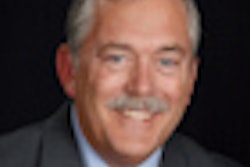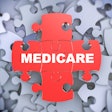
California's efforts to expand Medi-Cal dental services to a managed care model have been rebuffed after a pilot program designed to test the scheme failed to provide adequate dental care for children in Sacramento County.
Facing a $16 billion deficit earlier this year, Gov. Jerry Brown had proposed transferring nearly 90,000 poor children in the Healthy Families insurance program into Medi-Cal (the state's Medicaid program) as a way to cut costs by expanding dental managed care.
But legislators balked following a series of reports earlier this year about Sacramento children participating in a managed care pilot program who had trouble getting even emergency dental care, with some waiting more than a year before being able to see a dentist.
"I was getting frustrated because the kids I saw on Medi-Cal weren't getting the dental care they were supposed to get," said Sacramento Assemblyman Richard Pan, MD, a pediatrician who works in federally qualified health centers. "I had patients who complained they couldn't find care so I finally said, 'Fine, I'll call the hotline number for you right now.' And it's true, you don't get anywhere. I said, 'Oh, my God, this is what patients are putting up with.' "
“I had patients who complained they couldn't find care. And it's true, you don't get anywhere.”
— California Assemblyman Richard Pan,
MD
Community Dental Services -- also known as SmileCare -- was shut down in June by the California Department of Health Care Services (DHCS) after an audit revealed a myriad of problems. DHCS administers Medi-Cal and has enforcement authority over the managed care plans because it contracts directly with them to provide services.
Dr. Pan and other legislators adopted a new law that retains mandatory managed care for Sacramento but allows children to opt out and switch to fee-for-service if they cannot see a dentist within 30 days. The law also creates new accountability and reporting requirements for dental plans participating in Medi-Cal managed care programs in Sacramento and Los Angeles.
Only Sacramento and Los Angeles have geographic managed care (GMC) models, but Sacramento's program is mandatory while in Los Angeles it is voluntary, allowing parents to choose between fee-for-service or managed care for their children.
Children's advocates are relieved that dental managed care won't be expanded statewide but question why Sacramento's children must remain in mandatory managed care.
"We continue to ask the question, 'If it's not good enough for everybody else, why does it continue to be good enough here?' " said Cathy Levering, executive director of the Sacramento District Dental Society. "We tried to get rid of manage care because it wasn't working and kids are just not getting seen by dentists, the state wasn't managing the managed care plans, and the poor providers couldn't even keep their offices open based on low reimbursement," she explained. "It was a kind of the perfect storm in all phases."
Under the new program for Sacramento, the plans are offering dentists bonuses for some treatments such as restorations, which makes the program more like the fee-for-service model.
In the managed care model, California contracts directly with private dental plans, paying them about $11.50 per month for each child whether or not the child actually sees a dentist. The plans then pay providers about $3 per month to provide the care, according to Levering.
"This makes it more worthwhile for dentists to at least recoup their costs as opposed to getting $3 per patient," Levering pointed out. "I'm not sure it's going to work because parents have to go through a huge process to opt out of managed care, but time will tell."
Medi-Cal's poor record
Both Sacramento and Los Angeles counties have poor records of care for Medi-Cal children. In fiscal year 2010-2011, about 31% of Sacramento children with Medi-Cal saw a dentist, compared with nearly half of children on Medi-Cal statewide. Los Angeles scored even worse: About 23% of the 154,000 children on managed care saw a dentist during the same period.
The poor performance of the programs made lawmakers balk at adding children already in the Healthy Families program to Medi-Cal managed care. Healthy Families covers children in families with incomes too high to qualify for Medi-Cal.
Instead state Sen. Darrell Steinberg of Sacramento and Assembly Speaker John Perez of Los Angeles negotiated a deal to move Healthy Families kids into the more flexible fee-for-service dental care model under Medi-Cal.
Healthy Families has a better record with dental managed care than Medi-Cal. More than two-thirds of Healthy Families kids belong to dental managed care plans, according to DHCS.
"Gov. Brown wanted to move more Medi-Cal recipients onto managed care, but in the wake of Sacramento's problems, lawmakers refused," John Vigna, Perez's spokesman told DrBicuspid.com. "Sacramento and Los Angeles have this model, and there were some problems in terms of ensuring timely access, so we did not want to expand the program statewide until those concerns are addressed."
The rest of the state uses fee-for-service, which allows dentists to bill Medi-Cal for services and usually results in higher reimbursements.
"We have made significant strides in improving the performance of the plans, but it's not enough right now and we're still moving forward with improvements, strengthening contracts and putting in place provisions that make them accountable," DHCS spokesman Norman Williams told DrBicuspid.com.
The state can withhold payments to plans if their utilization rates fall below 39%, but it never withheld payment even though rates dropped to 20% in 2008, Levering said. But when DHCS reduced Medi-Cal reimbursements by 10% in 2008, the agency agreed to drop the ability to withhold payments.
The state has been moving more Medi-Cal recipients into managed care for their overall medical needs.
"There have been significant improvements in dental managed care," DHCS spokesman Tony Cava stated in an email to DrBicuspid.com. The state can impose penalties up to 10% for poorly performing plans and can terminate them for noncompliance, he noted.
Paid not to work
Approximately 8 million Californians are on Medi-Cal, including about 4.5 million who are in managed care, Cava said. By mid-2014, the amount of those on managed care will grow to about 6 million.
Critics of managed care say the model discourages dentists from seeing patients because providers get paid whether or not they provide services. Only 44% of the providers saw children at age 1 even though they got paid for them, according to Levering.
"With GMC you get paid not to work, but with fee-for-service you only get paid when you see the kids," she said.
But the fee-for-service model also has drawbacks, according to Dr. Pan.
"With fee-for-service there can be an incentive to overutilize services and do more than is necessary, and certainly in the medical field that's been a major critique," he said. "The question is, how are we going to get to appropriate utilization? That's what we have to figure out and do it in a way that's not overly onerous."
In Sacramento, when children had several teeth with caries, some insurers were requiring five separate visits instead of treating them all in one visit because it raises the encounter rate for the companies, Levering said.
"Kids were in pain and sent home from school with swollen cheeks," she said. "The plans weren't approving treatment, so the kids were just given something for the pain and given an appointment for 30 days later instead of being sent to the dentist to get the tooth extracted and treating the infection."
Lack of oversight
Both Dr. Pan and Levering said the main problem in Sacramento was lack of oversight.
"I think the biggest failure resulted when the state imposed GMC Medi-Cal as a pilot program in Sacramento -- there was really a lack of oversight," Dr. Pan said. "It's important that the department that's responsible for administering the program actually finds out and knows what happens to people who are being served."
"They didn't pay attention to what was going with the patients, there was no evaluation of what was happening to the patients directly, and they were relying on data the plans [companies] would supply," he said.
When he called county officials, they told him they had no say on the issue because it's a state-run program.
DHCS must accept responsibility for whatever plans they oversee, Dr. Pan asserted.
"Whether we do fee-for-service or managed care, we should invest in evaluating what's happening to patients directly, and we need a mechanism for people providing care on the front line to provide feedback that will go to somebody who can actually act on it," Dr. Pan said.
While some say the states prefer managed care because it's cheaper than fee-for-service models, a study by the First 5 Commission found that costs were comparable for both programs, Dr. Pan noted.
Part of the budget bill he worked on requires DHCS to do more oversight, requires the agency to allow the county and local providers to provide input to, and also gives locals access to utilization data that DHCS is getting to see if it matches their experience.
"It's an important part of closing the loop," Dr. Pan noted. "Ultimately, we need to think about the level of bureaucracy and payment levels in finding a solution. We do have larger budget issues in the state, but given the resources for right now, we certainly need to try to do much better than we're doing right now."
DHCS officials assert managed care can provide access to dental care for children while cutting state costs, but they acknowledge more oversight is needed.
"We believe managed care offers a great opportunity to have a dedicated dentist for children, and it's a way to help ensure they are seen regularly and get the kind of preventive care they need," DHCS spokesman Norman Williams stated in an email to DrBicuspid.com.
The managed care Medi-Cal program offers many lessons for how to implement managed care on both the dental and medical sides, according to Dr. Pan.
"The concern was that DHCS was saying, 'Here's the contract, now it's not our problem anymore.' That to me is unacceptable," Dr. Pan said. "The department is ultimately responsible for what happens to those patients. You can't blame it on the middle man."



















